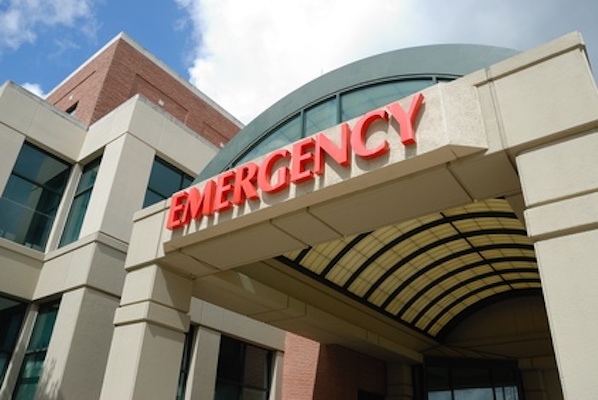Urgent. Emergent. It’s all the same, isn’t it? Think again. An urgent care is very different than an emergency room.
The Emergency Room
The words may sound very similar but they have different meanings. Urgent care must be given in a short window of time ranging from hours to days to stabilize a condition. Emergent care is an EMERGENCY. If not dealt with immediately, it can result in severe complications or even death.
It is important to distinguish between the two so that you know where it is most appropriate to get care. Going to an urgent care clinic when you have an emergency situation may delay access to the healthcare services you need.
The Urgent Care Clinic
Urgent care clinics are not all the same and may not be able to offer the type of care you need. Some draw blood. Others perform x-rays and less frequently CT scans. Still others can give medications by IV. Then, there are those that do none of the above. Before you go to a clinic, you may want to research what services they have available. Call your primary care provider for guidance.
A stroke clearly needs an emergency room. Other conditions, like those below, could go either way. Consider these five common medical problems seen for urgent/emergent reasons.
Abdominal pain:
You can have abdominal pain for a number of reasons. You may have an infection, like a “GI bug”, that causes diarrhea and/or vomiting. If you have severe pain in one area of your abdomen only, this could be more concerning, especially if you have rebound pain. This is pain that is worse when you press on the area even AFTER you let go. In these cases, you may require blood work and/or imaging with a CT scan or ultrasound. In these cases, a visit to the emergency room would be more appropriate.
Breathing problems:
Pneumonia, bronchitis, asthma, and croup are frequently managed in the urgent care setting. However, some people may be at high risk for complications and require higher levels of care. If you cannot breathe, if you have a known history for COPD with frequent hospitalizations, if you have ever been intubated, it may be in your best interest to go to the emergency room for additional therapies that may not be available in the urgent care clinic.
Chest pain:
Having chest pain does not necessarily mean you are having a heart attack. Inflammation of your rib cage could be to blame, muscle sprains, or even acid reflux and heartburn. Still, evaluation for a heart attack may be necessary given your age or risk factors. Not all urgent care clinics will have the capacity to do the necessary blood work to screen for this, even if they do have EKG machines available. If you have a known history of heart disease and have chest pain, please go directly to the emergency room. If you have left-sided chest pain that shoots into the jaw or left arm with sweating or shortness of breath, this is classic for a cardiac problem. Please go to the emergency room.
Fractures, sprains, and lacerations:
Most urgent care clinics are equipped to manage these situations. However, there are exceptions. Please, if you see your bone sticking out of your skin or you can see bone through an open wound, go to the emergency room. You are at high risk for infection and will need close monitoring and IV therapy. If you have amputated part of your finger or any part of you (you may be surprised at what I have seen), please go to the emergency room as well. Placing stitches in children can be challenging if the child is anxious. This may require sedation that an urgent care clinic cannot offer.
Infections:
Sinus infections, sore throats, and colds are the bread and butter of urgent care clinics. You may also have skin infections or abscesses that require evaluation and treatment. These are often managed with oral antibiotics or drainage of the abscess. You may consider going to the emergency room if redness is spreading over your arms or legs rapidly over minutes to a few hours. This could represent a serious bacterial infection that needs immediate IV therapy.
Many other medical conditions could lead you to seek care. Many of these can be managed in an urgent care clinic but use your best judgment. Urgent care clinics are not all equipped the same and may or may not be able to best treat certain emergency conditions. You want to go where you are able to get the care you need.


Leave a Reply